Are you tired of waiting for those extra pounds to drop? Do you want to know how to lose belly fat overnight? Then listen up! Believe it or not, there are faster ways to weight loss.
There’s no body shaming here. If you’re proud of how you look, then this article is not for you. But, if you’re struggling with your waistline, you’re probably asking yourself this question, “how long does it take to lose belly fat?” I can tell you how to get rid of it quickly, as in overnight!
Do you ever wonder: Why is my belly so big?
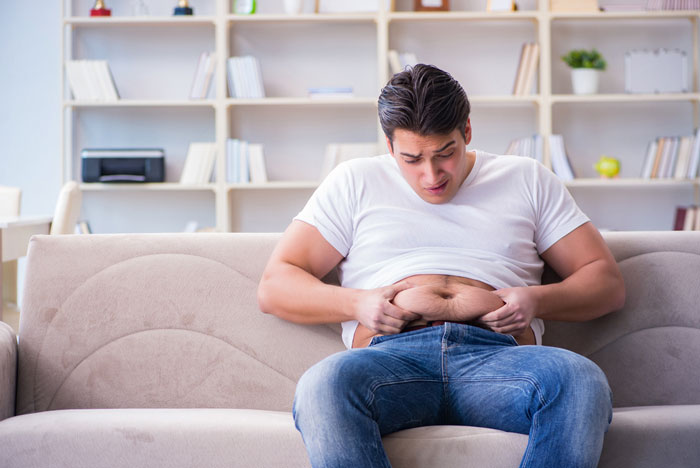
Are you curious about why it seems like extra weight always accumulates around your waistline? Well, there are a few reasons why this happens. One reason is that we grow older, and it’s easier to accumulate ‘gut fat’. Many people give it slang names like ‘muffin tops’, ‘jelly rolls’, or ‘overhangs’. It’s much different than a ‘beer belly’. Now, finding answers to queries like why is my stomach so big, can help us understand our bodies better. Once we understand the problem, it is easier to find solutions that will actually help.
Now the explanation to the above reason is, as we mature in age, our metabolism slows down, even if we do exercise. It seems unfair, but that’s just how human bodies age. When the metabolism slows, we find ourselves searching for ways to get even more exercise to reduce the gut.
Also, if you’re eating too much and exercising too little, you will gain weight. This weight tends to hang out more at the waistline, as mentioned earlier. For women, it collects in this area because the female bodies are designed to bear children. And so, it’s an extra layer of protection. In fact, the whole female body holds more fatty tissue, in general, than the male.
Understanding the different types of belly fat
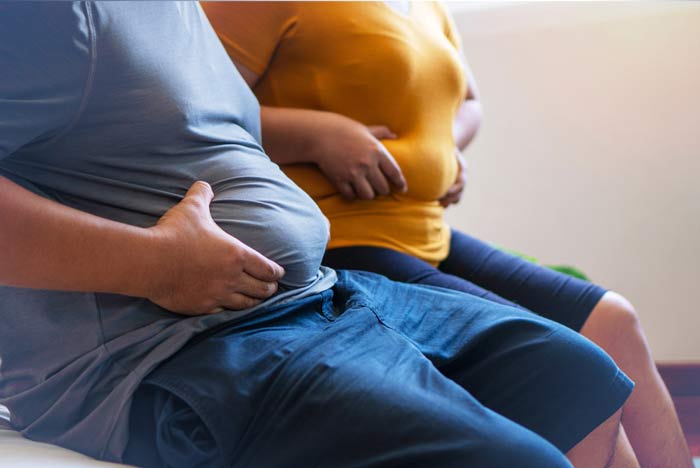
Some people may not know this, but there are different types of belly fat. The reason for this difference really comes down to how we accrue the extra fat tissue. And, we must consider various solutions according to what kind of excess gut we have. So, here are a few examples of the different kinds of waistline fat.
Bad Habits Belly
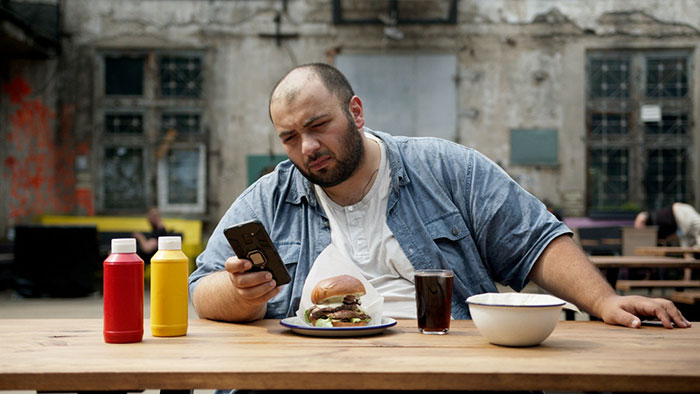
This kind of belly fat speaks for itself. If you don’t eat the right foods and indulge in the wrong ones, you will develop this kind of expanded stomach. Some of the wrong foods and drinks to use in excess are alcohol, sodas, starchy foods, and foods with loads of sugar. In contrast, eating foods with more fiber and drinking plenty of water can prevent a distended stomach. Fiber and water are essential for a healthy gut, mostly because of the prebiotic nature of the fiber. This helps in relieving constipation and bloatedness and can even assist in your precious weight loss.
Stress Belly
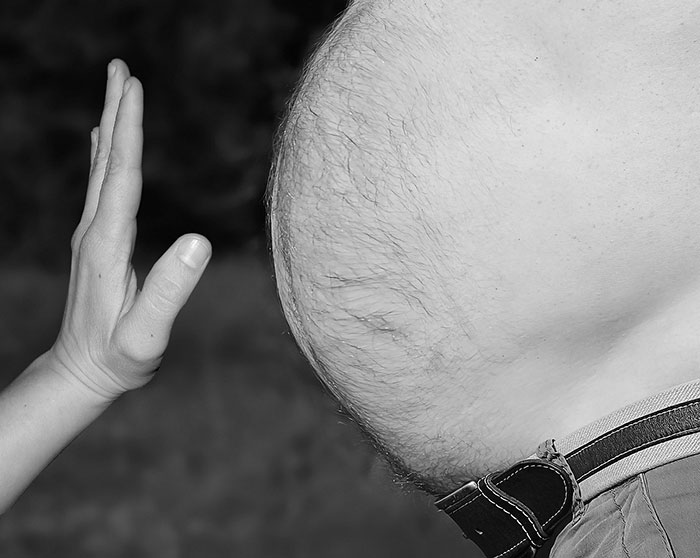
How long does it take to lose belly fat? Well, with the stress belly, it could take a little longer. The reason why the stress belly is one of the hardest types to lose is due to how it was acquired. Stress tummies are caused by worry, a sedentary lifestyle, loss of sleep, less food, and excessive caffeine.
The stress belly can mean you’re having symptoms of irritable bowel syndrome. You can also accumulate belly fat due to an increase in the chemical, cortisol. It is a hormone our bodies release when we are stressed. Now, naturally, normal amounts of cortisol are important for the functioning of the body. However, cortisol works by increasing sugar levels in the blood which affects the efficiency of insulin (the hormone that controls blood sugar). So, the more cortisol you build up, the higher the risk of weight gain and diabetes.
Bloated belly
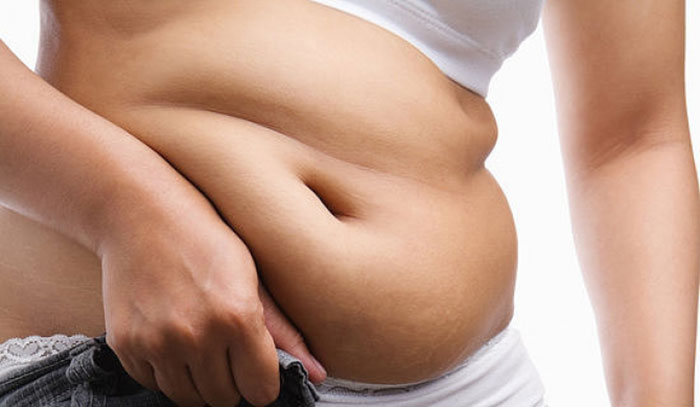
A bloated belly is tight, with feeling of fullness and often pain. If you suffer from this type of gut then you may keep asking yourself why is my belly bloated? There are many reasons to what causes bloated belly, and they can be anything from an underlying health problem to bad habits.
For instance, you could have bad bathroom habits, food allergies, fluid retention, or an imbalance of gut bacteria. You won’t know exactly until you consult a physician. Though, there are some things that you can try and manage it by, like controlling your diet. Foods with excessive sugars and salts, fizzy drinks, and insufficient intake of fiber, all lead to a bloated belly. Furthermore, you may be lactose intolerant so cut back on dairy products for a while and see if the bloating goes away.
According to gastroenterologist, Dr. Kyle Staller practicing at Harvard associated Massachusetts General Hospital – a sudden bloated belly in older people signals a red flag. This is especially true for people who did not suffer from bloating in younger years but do so as they age. There are many severe underlying causes for it. For example, IBS, Inflammatory Bowel syndrome, Chronic Constipation as well as Celiac Disease. Another serious cause for bloated belly in older people includes Cancer. The tumor can affect the colon, ovary, stomach and pancreas, etc. If this applies to you, then don’t hesitate and get a thorough check-up right now. Since people age 65 or older have Medicare eligibility, they shouldn’t worry about the expensive medicals tests. Their Health Insurance will cover the check-up and hospital fees, medicine cost, surgery or any other expense.
How can I get rid of upper belly fat?
Here’s some good news about that. Upper belly fat is usually easier to lose than to know how to lower belly fat. This is because upper fat is not located around the gut. If you are active, upper belly fat should melt away quickly. If you’re not active, you can try the plastic wrap technique used for the lower belly fat. It works in much the same way.
Tips about how to lose belly fat overnight
How long does it take to lose belly fat, no really? We want to know how to lose belly fat overnight specially how to lose lower belly fat Yes, we can work out, stop stressing, and even eat a bit less. But these things will take time. For some people, time is of the essence. So, I’m here to tell you how you can lose that annoying ‘muffin top’ while you sleep.
Plastic Wrap
While this is not a permanent fix, it will slim you down for the next day. If you have a special occasion or date with someone new, you can lose your belly overnight and look your best. All you need is plastic wrap, Preparation H with Bio Dyne (the product type that includes Bio Dyne is not sold in the U.S., but you can order online), and a sweat waistband.
Rub the preparation H with Bio Dyne on the area you wish to shrink. Wrap your belly in the plastic wrap, at least 4 or 5 layers, and then put on the waist sweatband. As you sleep, the Bio Dyne in Preparation H draws the fluid from the intended area. This fluid comes from the dissolving fat tissue. In the morning, you will notice a difference and have a tight waist.
Hot showers for how to lose belly fat overnight

Let’s learn another way about how to lose stomach fat overnight. While this might not produce huge results, it works. If you take a hot shower before bed, the heat in the water reduces levels of cortisol in your body. And what did I say about cortisol? That’s right, it promotes stress! Stress, in turn, can lead to accumulation of fat around the waist.
Bedtime Weight Loss Drinks

There are a couple of detox drinks for weight loss you can enjoy before bedtime that will help you lose belly fat overnight. While the fat loss may not be great after one night, the continued use of these natural solutions will bring amazing results. In fact, you might even conquer about how to lose lower belly fat.
1. Cucumber drink

This is one of the most precious weight loss drinks for night time and it works miraculously.
Ingredients:
- 1 cucumber
- Lemon zest
- A tbsp of ginger
- ½ glass of water
- Parsley
- 1 tbsp aloe vera juice
Instructions:
First, you need to peel the cucumber and cut it in slices. Add the cucumber slices, lemon zest, ginger, aloe vera juice and parsley along with the water in a blender. Blend it on full for about 2 minutes and voila! You have the cucumber weight loss drinks served.
2. Apple Cider Vinegar drink
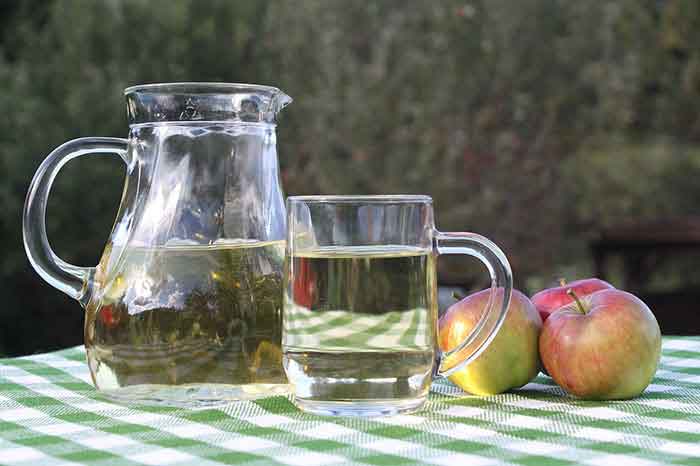
Ingredients:
- 1 ½ tablespoon apple cider vinegar
- Mint
- Honey
- Sugar
- 100 ml of lemon juice
- 250 ml water
- Ice
Instructions:
Start by crushing the mint and add sugar, apple cider vinegar, and honey into the mix. Add the mix in a hand blender along with water and lemon juice. Blend all the ingredients together and serve with ice.
3. Cinnamon and Grapefruit Drink

Ingredients:
- 100 ml grapefruit juice
- 250 ml sparkling water
- 1 cinnamon stick
- Mint
- Ice
- Sugar
Instructions:
Crush the cinnamon to powder and add it into a pan with 50 ml of water and sugar. Simmer until sugar melts and turns into syrup. Cool the syrup down. Once cold, mix the syrup with grapefruit juice, water, and mint. Serve with ice.
For best results, drink at least one of the detox drinks for eight loss every night. It is a great way to lose belly fat overnight. Also, this is one of the best flavored weight loss drinks among others.
4. Pineapple Juice

Ingredients:
- Ripened fresh pineapple
- Sugar
- Fresh ground black pepper
- Pinch of salt
- Water and ice cubes
Instructions:
Use a sharp knife to remove the skin of the pineapple and cut it into pieces. Add it to a blender and blend until smooth. Use a fine strainer to remove the pulp. Extract the maximum juice out of it using a spatula or spoon. Add sugar and pepper as you like. Serve chilled with ice cubes.
Since pineapple is low in FODMAP and enhances metabolism, it can be a great option to lose weight.
Add fiber-loaded Foods to Your Regular Diet
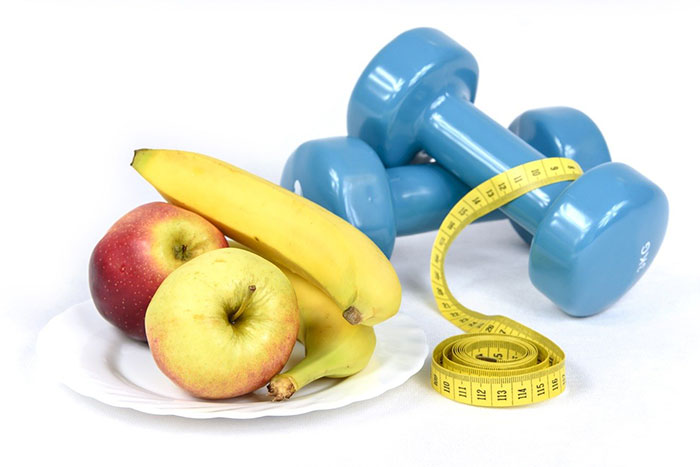
You will have a feeling of fullness for long hours if you take fiber-loaded foods. This is because fiber always reduces fat absorption from the food present in your digestive tract. It binds itself with bile acids present in your small intestine and hinders them in their work of digesting your dietary fats. The fiber in your food also binds sugar and other such carbohydrates. This delays the absorption of these substances into your bloodstream. Thus, you can say that fiber-enriched foods help a lot reduce extra fats accumulated around your belly. Hence, you must add fiber-loaded foods to your regular diet. Specifically, if you are focusing on how to lose lower belly fat.
Take More Protein Into Your Diet and Find Out How to Lose Belly Fat Overnight

Protein has the tendency to fight against the stubborn belly fat in a great way. You do not have to gorge on different food items if you take more protein in your daily meals, for proteins keep you satiated for long hours. Your extra belly fats will reduce at a much faster rate if you include eggs, cottage cheese, lean meat, and yogurt in your diet. So, you must increase your protein intake in different forms.
Say ‘no’ to White Sugar
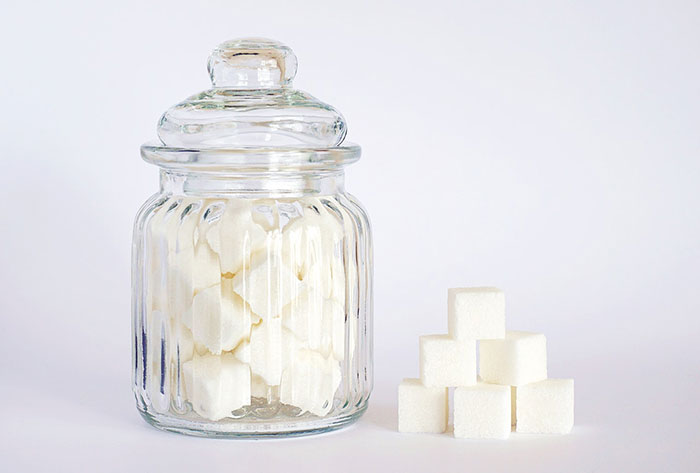
Processed sugar is always one of the worst causes of extra fats and weight. Though white sugar only contains simple carbohydrates such as glucose and fructose, these get converted into glycogen when taken in excess and get stored in your fat tissues. White sugar is the main cause of visceral fat and, hence, must be excluded from your regular diet with extraordinary efforts on your part. Instead, you must eat foods and fruits that contain natural sugars or occurring naturally sweetening substance like crystalline fructose, that’s found in moderate quantity.
Try To Sip Loads of Hot Water

Never keep yourself dehydrated. Rather, you must try your best to drink more and more water, especially hot water sip by sip. Water is a universal solvent and the greatest regulator in the human body. It helps you get rid of toxins and waste out of your body and boosts up your metabolism and keeps you energetic all the time. Sipping on hot water brings faster and marvelous results. That is why medical science emphasizes a lot upon drinking at least eight glasses (64 ounces) of water daily. You must start doing so right today.
Increase your body movements

You must change your sedentary lifestyle if you have one. Keep your body moving most of the time while performing your daily tasks. Walk to your office and use stairs instead of lifts to go up or downstairs. It will be far better for you if you undertake different exercises such as yoga, gymnastics, etc. The reason for this is that the fast-paced movements increase the body’s metabolism. Increased metabolism means more fat gets burned to create the extra energy. IF somehow, your weekdays are completely occupied, use happy Saturday mornings for extra workout and keep your weekly calories count in check. Furthermore, doing exercises like aerobics can increase the number of calories you burn significantly and can lead to a leaner body mass.
Sleep cooler to know how to lose belly fat overnight

If you turn down the thermostat in your bedroom, you can lose belly fat overnight. No kidding, you really can. You seem to burn more calories in a cooler temperature, and you get 8 hours of this calorie-burning if you sleep in a cold environment. If you sleep without clothes, you could get even better results. The reason for this is your body’s thermoregulatory system. When we sleep in a colder environment, our body has to increase its metabolic rate to generate enough heat to keep us warm. Again, higher metabolism means that you burn more calories.
Remove Electronics From The Bedroom

You see, smartphones and tablets emit blue light (LED). This light disrupts the production of melatonin. The less melatonin, the slower the metabolism. Exposure to this light also causes insulin resistance and increases hunger.
That is why we usually want that last snack right before bedtime, and right after scrolling social media. If we want to stop all this, remove the devices from the room, we will wake a bit lighter the next morning.
How To Lose Belly Fat Overnight Without Exercise
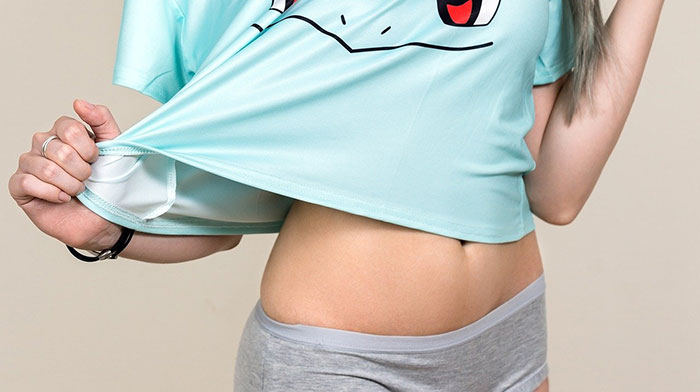
If you’re interested in keeping that belly fat off, but not crazy about excess activity, there’s a good way to do so. Drinking lots of water feeds the muscles. When you feed the muscles, you increase your metabolism. So, even if you spend the day sitting around talking to friends, but you’re drinking plenty of water, you’re losing weight.
If you want to know how to lose belly fat overnight, then dump the alcohol and sodas. Without exercise, avoiding the drinks will still trim you down. That’s because alcohol causes bloating, and bloating accumulates around the waist. Sodas have acid and sugars, so avoiding these drinks will also help keep that weight down.
Here’s one more tip: Try to stay happy. Did you know that laughter helps you lose weight and keeps you in shape? That’s right. When you laugh, you use many more muscles than you think. So, enjoy your friends and try to stay away from those stressful situations.
How can I get rid of upper belly fat?
Here’s some good news about that. Upper belly fat is usually easier to lose than lower belly fat. This is because upper fat is not located around the gut. If you are active, upper belly fat should melt away quickly. If you’re not active, you can try the plastic wrap technique used for the lower belly fat. It works in much the same way.
Different Types of Exercises for How to Lose Belly Fat Overnight

If you want to really accelerate the weight loss process, then add at least one of these exercises into to your daily routine. There are different types of exercise to lose belly fat and they all work wonders when done right. Here we list some of them:
Crunches
The crunches are very efficient and effective way to burn fat around your waist. You can do crunches by lying down straight on as exercise mat and placing your hands behind your head. Lift your head and knees together in a crouching motion, trying to make them meet. Repeat 15 times for 3 sets with 1-2 minute breaks between each set.
Leg Raises
Leg raises are a great workout for your abdominal muscles and ensures a fast way to burn fat around your waist. You can do leg raises by laying down straight on the ground and place the palm of your hands below your hips for support. Then, with your knees locked, raise your legs straight up forming a 90-degrees angle between your legs and abdomen.
Pushups
One of the most amazing exercise for all over body are pushups especially for your abdomen. Pushups are easy to do and you can gradually work your way to higher reps by practicing daily. To do pushups, get yourself into plank position, from there onwards, move your legs wider apart and keep your feet on your toes. Remember to keep your back as straight as possible and do not slouch. Push your body down to the ground by bending your elbows and then straighten them back again. Try to do as many reps as you can.
Planks
Planks help build your core muscles and burn belly fat remarkably. To do a plank, get on all four of your limbs. Place your hands directly below your shoulders and straighten your elbows, locking them. Place your feet together on your toes and straighten your knees. Hold this position for at least 30 seconds. Repeating 3 times. Remember to breathe evenly and properly throughout the exercise and don’t hold your breath.
Russian Twists
Russian twists are a great exercise to lose belly weight. To do Russian twists, sit upright on the floor with your feet in the air and knees slightly bent. Hold an exercise ball near your chest and lean back slightly and then twist to your right side with your back straight. Hold on, and then twist left keeping the back straight. Do 3 sets of 15 reps of this exercise.
Here’s How to Lose Lower Belly Fat Easily
Lower belly fat is a little more stubborn than the upper belly fat. The accumulation rate of fat is higher in the lower abdomen than the upper tummy. There are many factors that contribute to this, however, mainly it boils down to your diet, genetics, and lifestyle factors. Comparatively, it is easier to get rid of the upper belly fat. However, once you learn how to get rid of lower belly fat, it is not that hard either.
Burning the Extra Calories
Extra fat accumulates when you eat more calories than you can burn. Reducing the amount of calorie intake by 500 calories lesser than the daily requirement is a great technique on how to cut down lower belly fat. You can’t lose 30 pounds in 30 days, but if you maintain this calorie deficit, then you’ll be able to lose 1 pound of fat per week.
Try Yoga
Yoga can prove to be very beneficial for your daily life. You can find peace and balance through it. Though, that is not all yoga can do. You can even do yoga to melt belly fat and get back in shape. The yogasana for belly fat are designed specifically to affect your core muscles and get them working.
You must be wondering, how to shrink down lower belly fat using yoga while it is a very slow isometric exercise? Well, yoga might seem slow but it is very hard on the muscles and increases the metabolism rate. Yes, yoga can take some time to reduce the belly fat than other methods. But, remember that you didn’t get a fat belly overnight, so stop wondering how to lose belly fat in 3 days or less. It’ll take time, but in the end it is worth it.
Control the Food Intake
The best way to eliminate a problem is by cutting the head of the snake. That is to say, control the source of the problem. We know that the extra fat that collects around our waist comes from the food we eat. So, it is best to eat healthier foods that have a lesser amount of saturated fat. This way, you wouldn’t have to look up how to lose belly fat in 2 weeks before your best friend’s wedding. Balance is key in nutrition and you must always consume only that which you can burn.
Stay Stress Free and Don’t Disturb Your Circadian Cycle
There are other factors that contribute to weight gain, the two most important are stress and sleep. Stress in the forms of anxiety and tension can cause you inflammation and to gain a fat belly overnight. This is due to the hormone cortisol that we talked about earlier in this article. If you feel you are stressed, then try some stress management techniques. Disturbed sleeping patterns can also cause stress and weight gain. So, try to keep your natural circadian cycle in check and get a proper night time sleep. Now you know how to lose lower belly fat so make use of this knowledge.
Exercises to get rid of lower belly fat

Exercises are the best answer to the question of how to lose lower belly fat. You cannot lose fat belly overnight but with these exercises you can lose them in just a few days. Exercises help burn the extra calories. With proper diet and a lot of workouts you’ll lose that lower belly fat in no time.
How to reduce belly fat in 7 days? Well, with these exercises of course. However, the key is to be consistent. As in the famous words of Anthony Robbins: “It’s not what we do once in a while that shapes our lives. It’s what we do consistently.”
Sit Ups
Sit ups are an absolute exercise to tone your lower body and to lose lower belly fat. Do sit ups burn belly fat, it is as simple as that. Sit ups provide a complete endurance training for your abdominal muscles and help them burn a lot of fat. They are similar to crunches but provide more range. You can do sit ups by lying down on the mat with your knees slightly bent. Cross your hands on your chest and pull your head and shoulders by using your abdominal muscles. Remember to breathe.
Side Bends
Side bend exercises are a staple of any good core workout. They are especially important for the lower belly as they work on the obliques. You can do side bends by standing tall, with your feet together. Draw your arms together and clasp your hands far above your head. From here on, bend from one side to the other while applying pressure on your abdomen. Try to keep your head and shoulders straight while bending.
Bridge Exercise
Bridge exercises are a balancing exercise that target your core muscles. This is a proficient way on how to lose lower belly fat as they work the abs, lower back, and glutes. You can do a bridge by lying down flat on your back, and make a straight line forming a diagonal with your chin and knees. Remember, to keep your back and glutes tight. Breath in and out while you hold that position for 10 to 15 seconds.
Side Plank
Side planks are important as they work the muscles that are usually not used in the conventional abs workout like crunches and sit ups. This is a belly fat cure that you should definitely incorporate in your daily workout routine. To do a side plank, you start with the normal plank position. From there on, turn sideways balancing your weight on your arm and foot. Hold this position for 30 seconds to a minute. Repeat with the other side.
Jackknife
Here is how to get rid of lower belly fat amazingly fast; Jackknives. It is a complete and skillful workout for the lower belly. You can do a jackknife by lying flat on your back and stretching your arms out, while your feet don’t touch the ground. Try to make your hands and feet meet by using your abs and core muscles. Remember to breathe properly while doing any abdominal exercise.
How building muscles can help you lose weight overnight

A marvelous way to lose weight is by concentrating on building muscles rather than losing weight. Let us explain how it works. When we workout our body’s metabolism rate rises to keep up with all the extra energy we need.
Metabolism rate or simply metabolism is the number of calories we burn during the day. Our body is also burning calories for the bodily functions when we are simply sitting or lying down. This type of metabolism is resting metabolism.
So, when you build muscles and gain more muscle mass, the body’s resting metabolism rate also increases. Thus, using more calories and in turn helping you lose weight. As an alternative to doing atypical diets like Keto, you can focus on building more muscle mass. Instead of asking how long does it take to lose weight on keto, you should be asking how you can turn your fat for muscles.
Beat the belly battle

You all might have heard the Mindy Kaling weight loss journey or the story of Susan Boyle weight loss. So, never give up when it comes to looking your best. We all deserve the physique of our dreams, though some us have to work a little harder for it than others. If you truly want to know how to lose belly fat overnight, give these tips and tricks a try. Now that you know all these precious weight loss techniques, with a little determination and support from friends, you will lose that belly fat in no time.
It is never too late to be what you might have been.
George Eliot
FAQs

You can use plastic wrap to lose weight overnight by using this method. Losing weight through plastic wrap may not be a permanent fix. This is because the weight loss is mostly in terms of water.
You can lose an inch of belly fat overnight by making use of special diets like sipping of hot water before sleeping, drinking a weight loss drink at night, sleeping cold, and doing exercises.
Losing 2 pounds of belly fat overnight is possible but very dangerous. You can use the plastic wrap method. However, it is best to not take any shortcuts in life as they can lead to further complications.
It depends on your body type, weight, amount of fat, daily activities, genetics, and underlying conditions. There is no one answer that fits all. You can calculate your fat using a BMI calculator.
Losing lower belly is harder and more time and energy consuming. This is due to the beta fat cells that are very stubborn and hard to change. Again, how long would it take to lose lower belly fat depends on your weight, age, and body type.
Losing belly fat is a dependent variable that relies on many factors. However, once you lose the belly fat completely then it takes almost 3 months to 6 months to get prominent abs.
Most probably lower belly fat is harder to cut down as upper belly fat mostly consists of baby fats which has been stored in the body due to your recent fat intake. On the other hand, how to lose lower belly fat is a tough question as lower belly fat is stubborn which consist of cluster of fat cells that are stored deep in the body as a reserved-backup.





